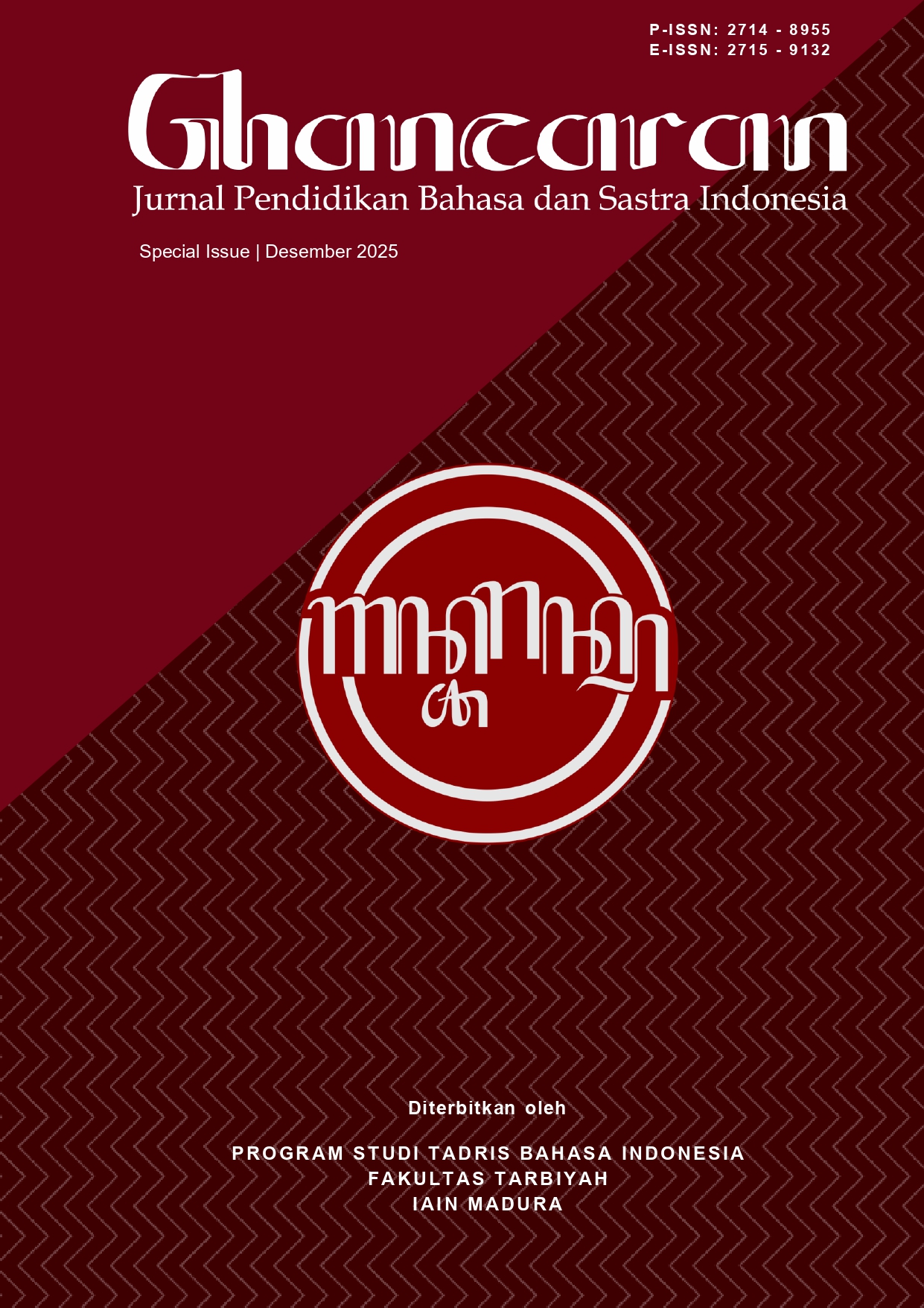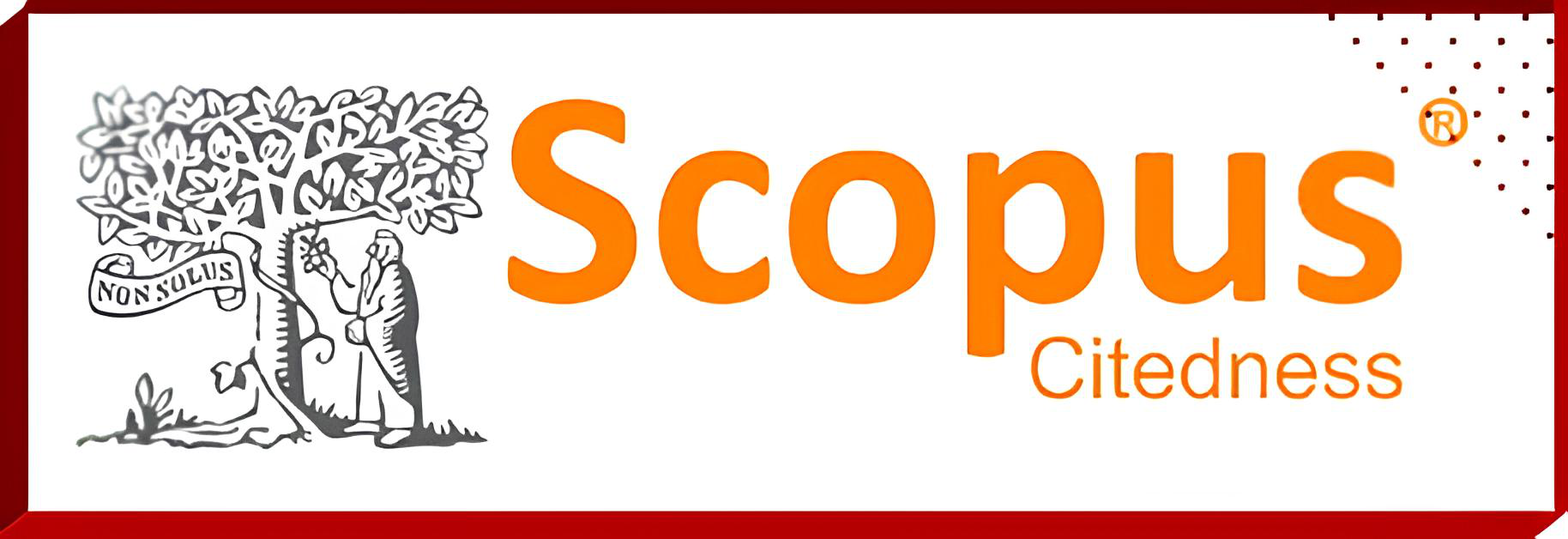Pola Pengembangan Aspek Perkembangan Bahasa Anak Usia Dini: Prediksi Trajektori dan Implikasi Pedagogis di Masa Depan
 Abstract views: 224
,
Abstract views: 224
,
 PDF downloads: 181
PDF downloads: 181
Abstract
It is a necessity for educators, parents, and policymakers to understand and optimize the developmental patterns of early childhood language. This research examines the current and future projection of the developmental patterns of early childhood language aspects (receptive, expressive, and literacy). The findings of this study will serve as a practical guide for educators and parents, helping them design appropriate social and personal interventions according to the unique needs of each child. This study uses a descriptive qualitative method with data obtained from document analysis of accreditation results from several early childhood education institutions in East Java. Data analysis was conducted simultaneously using the interactive model approach by Miles, Huberman, and Saldana, which includes data condensation, data display, and conclusion drawing. Data validity was ensured through source and method triangulation. The results show that receptive language is stimulated through activities such as storytelling and expressive language through question-and-answer sessions. Some educators have not yet facilitated children to retell something they know or to express ideas in writing or scribbles. The use of IT to stimulate children's language skills is one of the essential things. It is predicted that there will be a shift towards a more holistic, integrated, and play-based approach, combining all three aspects of language into a complete unit by leveraging IT in the future. In conclusion, language development requires a balance between technological innovation and quality human interaction to optimize a child's linguistic potential.
Downloads
References
Berk, L. E. (2018). Development Through the Lifespan. Sage Publications.
Chairilsyah, D. (2022). Improving Language Skills for Early Childhood. Jurnal Pajar (Pendidikan dan Pengajaran), 6(2), 418.
Chen, L., & Li, Q. (2022). The Impact of Digital Media Exposure on Receptive Language Development in Preschoolers. Journal of Early Childhood Education, 45(2), 123-135.
Chomsky, N. (1965). Aspects of the Theory of Syntax. MIT Press.
Creswell, J. W. (2014). Research Design: Qualitative, Quantitative, and Mixed Methods Approaches (4th ed.). Sage Publications.
Dardjowidjojo, S. (2005). Psikolinguistik: Pengantar Pemahaman Bahasa Manusia. Yayasan Obor Indonesia.
Hadley, E. B., Newman, K. M., & Mock, J. (2020). Setting the Stage for TALK: Strategies for Encouraging Language‐Building Conversations. The Reading Teacher, 74(1), 39-48.
Kemendikbud. (2014). Peraturan Menteri Pendidikan dan Kebudayaan Republik Indonesia Nomor 137 Tahun 2014 tentang Standar Nasional Pendidikan Anak Usia Dini.
Kementerian Pendidikan, Kebudayaan, Riset, dan Teknologi. (2024). Peraturan Menteri Pendidikan, Kebudayaan, Riset, dan Teknologi Republik Indonesia Nomor 12 Tahun 2024 tentang Kurikulum pada Pendidikan Anak Usia Dini, Jenjang Pendidikan Dasar, dan Jenjang Pendidikan Menengah.
Kementerian Pendidikan Dasar dan Menengah. (2025). Peraturan Menteri Pendidikan Dasar dan Menengah Republik Indonesia Nomor 13 Tahun 2025 tentang Perubahan atas Permendikbudristek Nomor 12 Tahun 2024 tentang Kurikulum pada Pendidikan Anak Usia Dini, Jenjang Pendidikan Dasar, dan Jenjang Pendidikan Menengah.
Liu, S., Reynolds, B. L., Thomas, N., & Soyoof, A. (2024). The Use of Digital Technologies To Develop Young Children’s Language and Literacy Skills: a Systematic Review. Sage Open, 14(1),
McNeill, B., Gillon, G., Gath, M., & Woodward, L. (2024). Trajectories of Language Development, Cognitive Flexibility and Phoneme Awareness Knowledge In Early Childhood. International Journal of Language & Communication Disorders, 60 1, e13139
Miles, M. B., Huberman, A. M., & Saldana, J. (2014). Qualitative Data Analysis: A Methods Sourcebook (3rd ed.). Sage Publications.
Miller, S., & Davis, T. (2021). Digital Literacy Tools and Early Reading Skills: A Comparative Study. Early Childhood Research Quarterly, 36(4), 567-580.
Morrow, L. M. (2017). Literacy Development in the Early Years: Helping Children Read and Write. Pearson.
Patel, R., McQueen, E., & Gold, C. (2025). Balancing Digital Media Exposure: Enhancing Language and Social Development in Early Childhood. Pediatrics in review, 46 5, 245-257.
Piaget, J. (1962). Play, Dreams and Imitation in Childhood. W. W. Norton & Company.
Sangkala, I., & Mardonovna, N. (2024). Artificial Intelligence As A Personalized Tutor In Language Learning: A Systematic Review. Klasikal : Journal of Education, Language Teaching And Science.
Smith, J., & Jones, A. (2023). The Role of Peer Interaction in Expressive Language Development of Preschoolers. Journal of Child Language, 50(1), 89-102.
Vygotsky, L. S. (1978). Mind in Society: The Development of Higher Psychological Processes. Harvard University Press.
Wahyuni, I. (2020). Fostering First Language Skills Through Early Listening Activities: A Case Study on A Pre-School Child’s Language Acquisition. 3, 57-70.
Copyright (c) 2025 GHANCARAN: Jurnal Pendidikan Bahasa dan Sastra Indonesia

This work is licensed under a Creative Commons Attribution-ShareAlike 4.0 International License.
Ghancaran: Jurnal Pendidikan Bahasa dan Sastra Indonesia uses an Open Access Policy under the Creative Commons Attribution-ShareAlike 4.0 International License. Authors publishing in this journal agree to the following terms:
- Ghancaran Journal holds the copyright and grants the journal rights for first publication with the work simultaneously licensed under a

The work is distributed under Creative Commons Attribution-ShareAlike 4.0 International License which allows others to share, copy, and redistribute the material in any media or format and adapt, remix, change, and develop the material even for commercial purposes, as long as it is stated credit and license derivative works under similar terms. - Authors may make additional contractual arrangements for non-exclusive distribution of the journal's published work version.
- Authors are permitted to post their work online (e.g., in institutional repositories or on their websites) before and during submission, as doing so may lead to productive exchange.



















